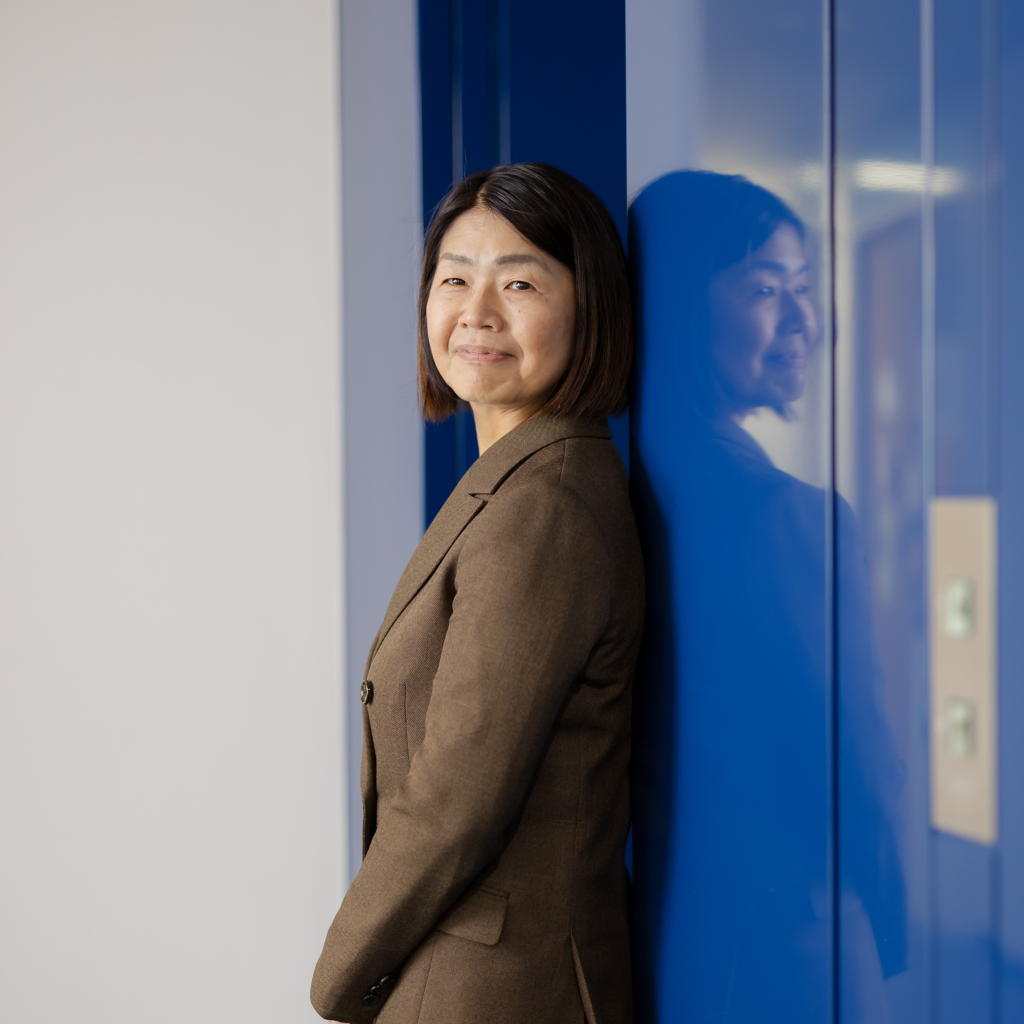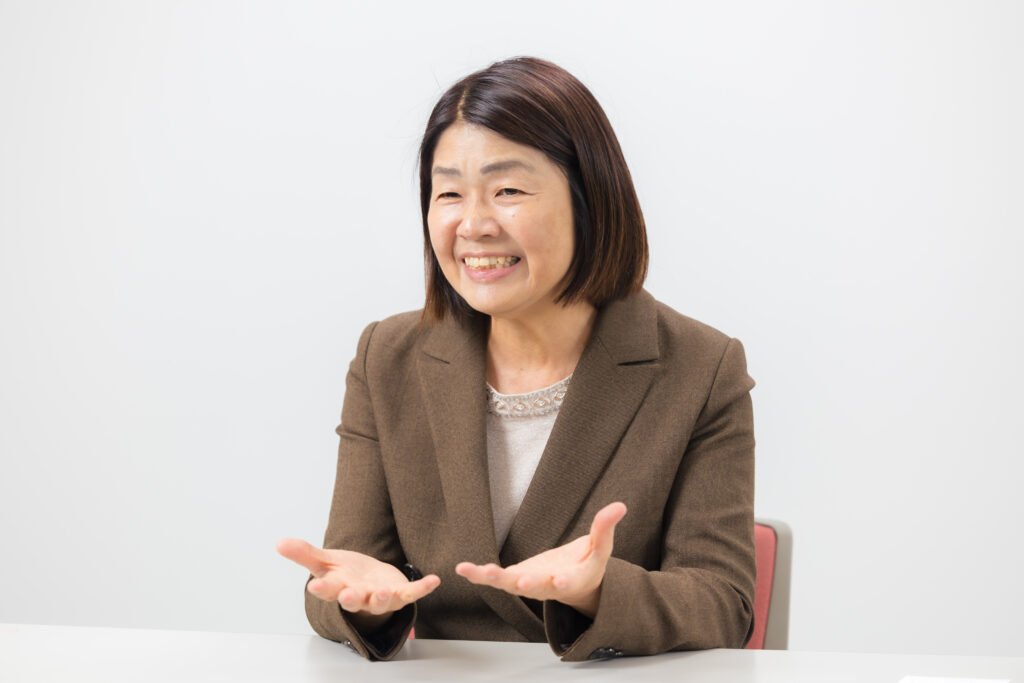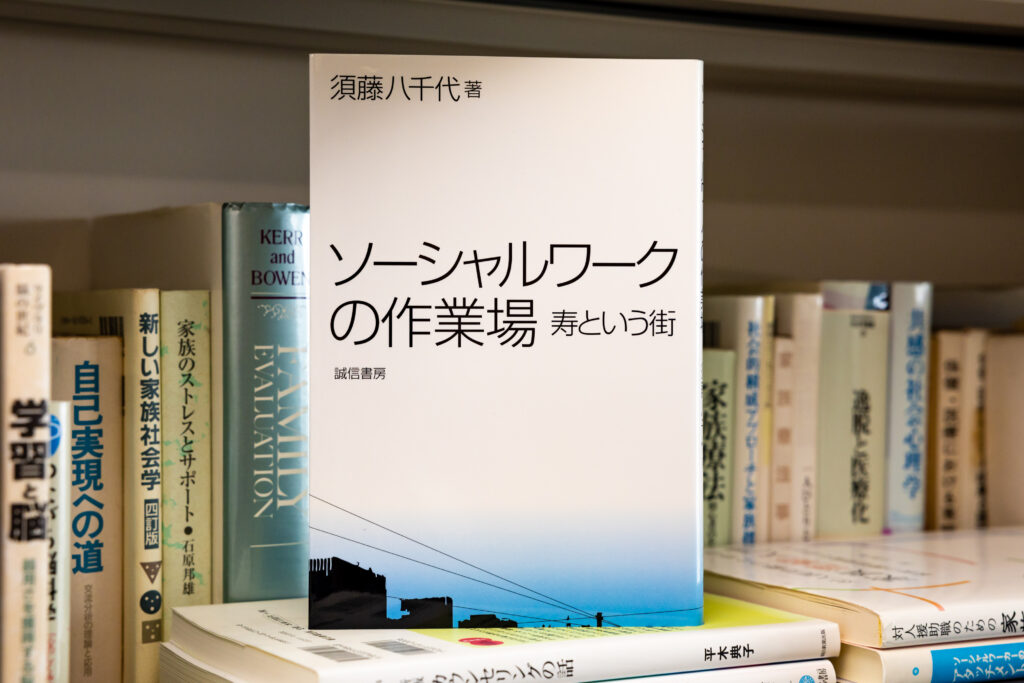
Professor Eriko Takayama from the Department of Social Services, Faculty of Human Sciences, specializes in research on medical social work. Through investigating the practices of medical social workers, she conducts research on achieving effective and precise support for patients and explores the role of medical social workers in building regional networks.
Many patients with serious illnesses being admitted and discharged from hospitals face economic, social, and psychological issues. Medical social workers provide support from the social welfare aspect by thinking of solutions together with patients. My research mainly focuses on support at the time of hospital discharge.
The roles of people involved in the healthcare and medical fields—such as doctors, nurses, nursing care workers, and medical social workers—are changing rapidly. Amid such changes, when thinking about the ideal for medical social workers, it is necessary to first properly understand the current situation. Therefore, I conduct investigations based on government reports such as those by the Ministry of Health, Labour and Welfare, and carry out interviews and questionnaire surveys with people from hospital operation and management departments and medical social workers.
Based on these activities, in 2017, we developed a self-evaluation manual for medical social workers on hospital discharge support. It states items regarding hospital discharge support as a social worker, such as whether the patient’s intentions have been properly understood, whether preparations have been made for life after discharge that consider not only the state of illness but also factors such as family composition, lifestyle, and economic situation, and whether recommendations have been given to the medical institution they are being transferred to. Social workers can use this manual to evaluate their own practices regarding hospital discharge support.
Realizing the importance of regional networks during investigation

While conducting investigation for the development of the manual, I realized the importance of building a network based on the local community. Due to revisions of the medical and social welfare systems and the establishment of the long-term care insurance system, many medical and care-related institutions have been created with different functions. Patients will be disadvantaged if these institutions compete with each other for patients and only pursue their own interests.
However, medical social workers can encourage collaboration with local hospitals and other institutions. In fact, when interviewing them, I realized that medical social workers play an important role in building regional networks. I found that they establish opportunities for dialogue, facilitate discussions, and depending on the region, arrange test units between hospitals and use the same words but have different definitions. For example, they share information such as the method of chopping meals, which may be small but is important to patients. Through these various efforts, they worked on establishing a mechanism that allows several hospitals to function like the ward of a major hospital.
The real charm lies in feeding back research results to the frontlines and feeling the change
Currently, I am looking at regional medical support hospitals with mechanisms that allow joint use and such of medical and other equipment that cannot be afforded by family doctors in the region. I am conducting investigative research that focuses on the roles of medical social workers in such a system. Going forward, the issue is about sharing pioneering examples and best practices—including the self-evaluation manual for hospital discharge support and building of regional networks—with medical social workers nationwide.
I feel the real charm of this research when the knowledge obtained and solutions developed through this research are conveyed to the frontlines and the changes can be seen. I hope to conduct research as close as possible to the frontlines, as I worked for 10 years as a medical social worker before entering graduate school to become a researcher. I think that the field of social welfare in particular requires the further polishing of research by taking in feedback from the ground.
The book I recommend
“Sosharu Waku no Sagyoba—Kotobuki to Iu Machi” (Workplace of social workers—The place called Kotobuki)
by Yachiyo Sudo, Seishin Shobo

This is Yachiyo Sudo’s record of working as a social worker at a Doya-gai (slum) in Yokohama known for being a place where many day workers live. It gives a detailed account of the experiences gained from facing the residents who are avoided as they live in a “special” district and are unable to get the necessary assistance.
-
Eriko Takayama
- Professor
Department of Social Services
Faculty of Human Sciences
- Professor
-
Graduated from the Department of International and Cultural Studies, College of Liberal Arts, Tsuda University. Studied social welfare at Japan College of Social Work, after which she worked for 10 years from 1983 as a medical social worker at places such as Tokai University Hospital and Matsuyama Rehabilitation Hospital. Subsequently received her M.A. from Tokyo Metropolitan University Graduate School’s Division of Social Sciences. Took on several positions from 2000—such as lecturer and assistant professor at the Department of Social Welfare, Faculty of Social Welfare, Rissho University—before assuming her current position in 2005.
- Department of Social Services
Interviewed: June 2022